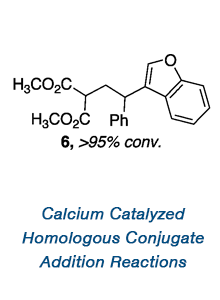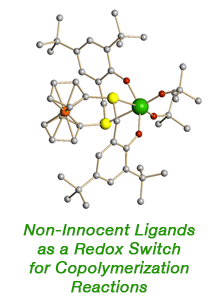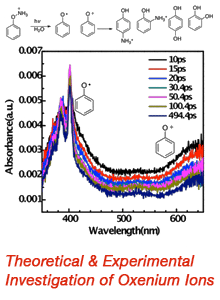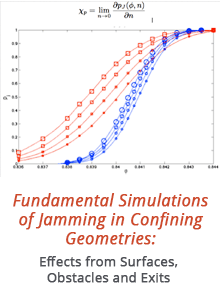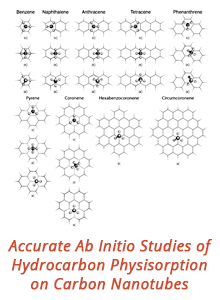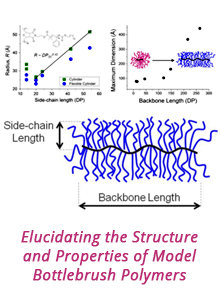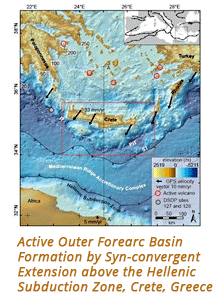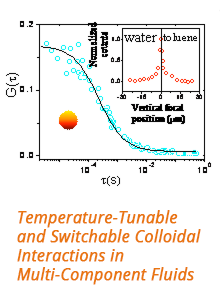58th Annual Report on Research 2013 Under Sponsorship of the ACS Petroleum Research Fund
Reports: DNI1050264-DNI10: High Performance One Dimensional Nanocable Catalysts for Fuel Cells
Wenzhen Li, PhD, Michigan Technological University
- We developed a solution phase-based method to accurately prepare multi-metallic electrocatalysts, including ultra-thin PtFe-nanowires, PdFe-nanoleaves (NLs). These 1-D nanowires demonstrated higher ORR activity and electrochemical durability than the conventional Pt/C catalysts.
- We extended this solution phase synthesis method to prepare non-precious metal Ag nanoparticle catalyst with small size of 2-9 nm. Single H2-O2 and glycerol anion exchange membrane fuel cells with the Ag/C cathode catalyst have shown superior single cell performance.
- We extended this solution phase synthesis method to prepare PdNi nanoparticles with small size of 2-5 nm, which demonstrated higher ethanol oxidation activity than Pd/C and PdNi/C prepared via an aqueous-phase reduction method.
- We established an electrochemical probe reaction to monitor the restructuring of nanostructured catalysts under electrocatalytic reactions.
- We also used this solution phase synthesis method to preparation of Au nanoparticles for electrocatalytic oxidation of polyols (glycerol, ethylene glycol) for generation of electricity and valuable chemicals in anion exchange membrane-based electrochemical reactors.
Our findings have led to 10 research articles published in high-profile journals such as Chemistry of Materials, 2011, 23, 1570-1577; Nanotechnology, 2011, 22, 015602, International Journal of Hydrogen Energy, 2011, 36, 12686-12697; 2012, 37, 9393-9401; ChemCatChem, 2012, 4, 1105-1114; Applied Catalysis B Environmental, 2012, 119, 40-48; 2012, 125, 85-94; Green Chemistry, 2012,14, 2150-2152; Frontiers in Green and Environmental Chemistry, 2013,6,1; Renewable Energy, 2014, 62, 556-562. These new publications have attracted attention worldwidely with an overall citation of 80+times (from Web of Science).
We (the PI and graduate students) also gave over 20 talk / invited presentations in ACS, AIChE, NACS meetings and universities (SUNY at Albany, Arizona State University, and University of Tennessee at Knoxville) that acknowledged this grant.
The research activities have been closely integrated into various education and outreach activities, and have greatly stimulated the passion of the participating students in catalysis, nanomaterials and energy research. Partially supported by this grant, three Ph.D. (Zhiyong Zhang, Le Xin, Ji Qi) and one M.S. student (Zhichao Wang) have actively participated in this research project, and obtained strict catalysis and electrochemistry research training. Among them, Zhiyong Zhang defended his Ph.D. dissertation of “Advanced Nanostructured Electrocatalysts for Electricity Generation and Biorenewable Alcohol Conversion’ in August 2012. He has published 7 first-authored papers, and is currently a postdoc researcher in the Oak Ridge National Lab (ORNL). With partial support of this grant, we also established research collaboration with DOE-ORNL and DOD-Naval Research Lab, and integrated the research in the undergraduate and high-school student education/outreach. We have developed a Catalysis for Energy workbook as a unique education material, which has been used for an interdisciplinary undergraduate Fuel Cell Fundamental course and Alternative Fuel enterprise projects. Four undergraduate students were actively participating in the electrocatalysis project and over 70 diverse high school students (through Michigan Tech's Summer Youth programs and Women in Engineering program) learned the basic principle of catalysis and fuel cells, and hands-on experiences in fuel cell operation and tests. The comments from the high school students show that the K-12 outreach activities helped them to better understand the significance of science and engineering.
Copyright © 2014 American Chemical Society


